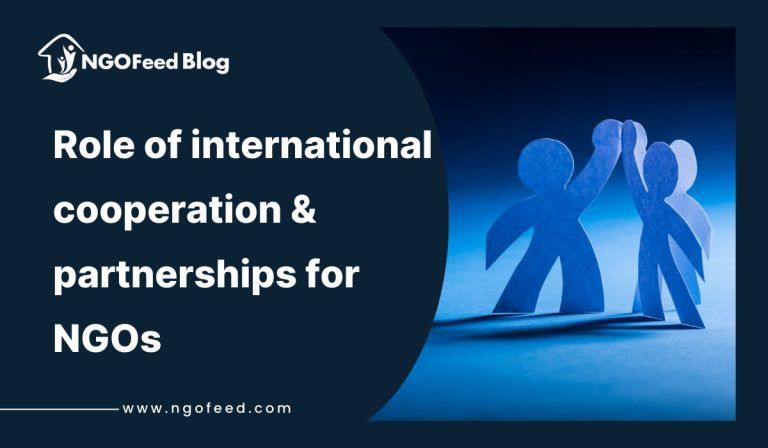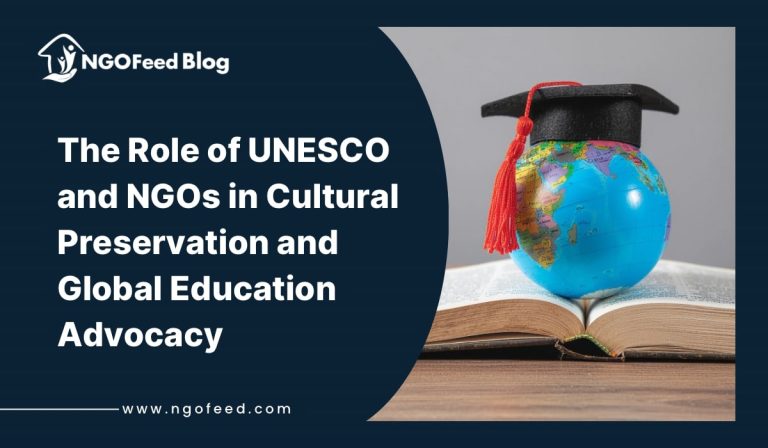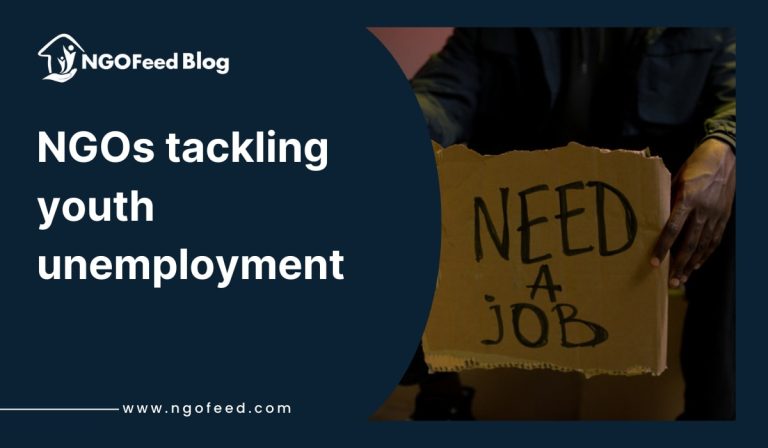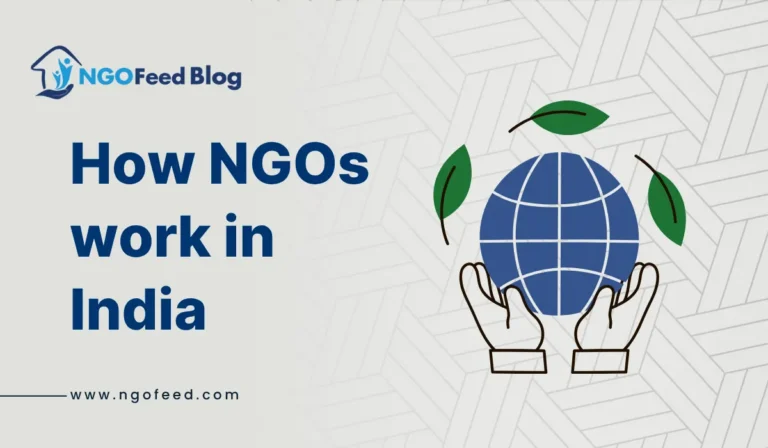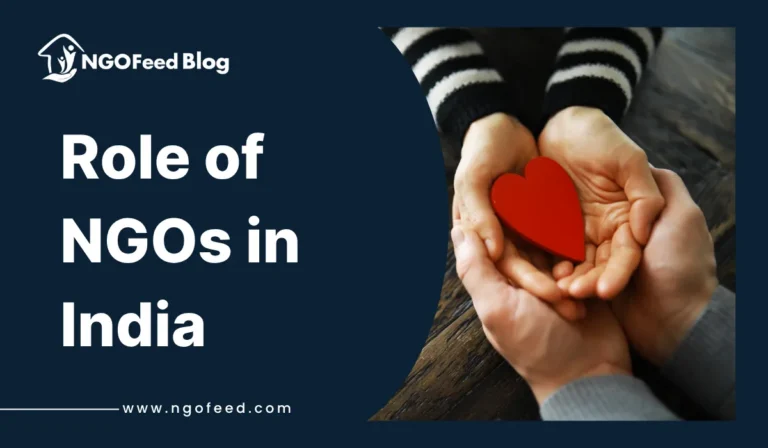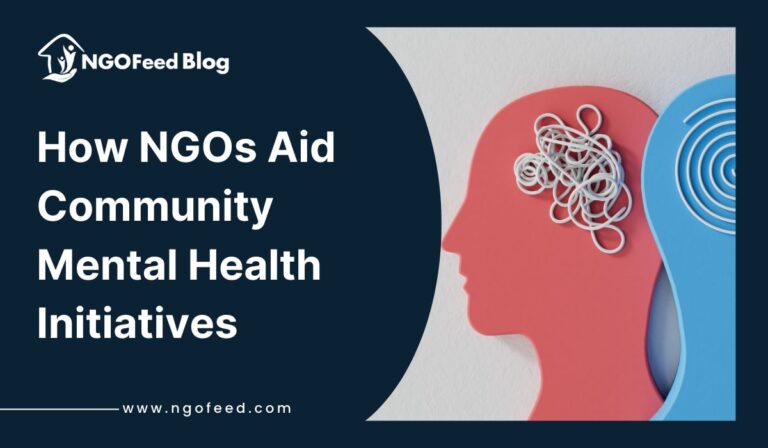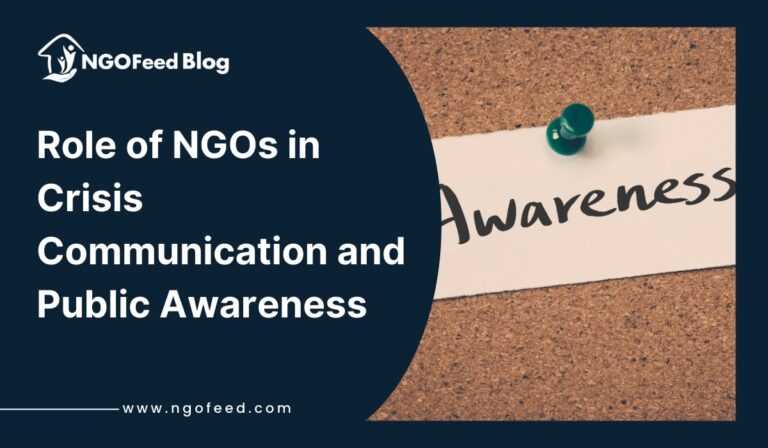Role of NGOs in Influencing Government Policies: The implementation of public policies and governance heavily relies on Non-Governmental Organizations (NGOs) through their work to defend social justice along with human rights while promoting environmental sustainability and economic equity. NGOs serve as civil society to policymaker translators through their operational networks and empirical information and their dedicated connection with communities. Government decisions benefit from NGOs who ensure policies mirror both community requirements and urgent global matters starting from development through ultimate execution.
Critical strategies adopted by NGOs for affecting policymaking include public awareness campaigns as well as government body involvement and direct contact combined with litigation activities and lobbying interventions. Their work delivers vital information together with instance evidence and specialist analyses which aids in designing laws that are both inclusive and effective. Amnesty International and Greenpeace lead major policy changes across the world but regional governance development primarily depends on local NGOs.
Also Read: NGO in Women Empowerment
Democracies benefit from Non-governmental organizations (NGOs) in India which serve as monitoring bodies to evaluate government performance and reveal missing legislation points. The organizations mobilize public support to create partnerships between stakeholders which drives progress through reform.
Table of Contents
Role of NGOs in Influencing Government Policies
NGO success rates depend heavily on political government backing and available funding alongside proper regulatory frameworks. The challenges have not diminished the essential role that NGOs play in maintaining transparent policymaking that involves representatives of society.
Also Read: Role of UNESCO in Women Empowerment
Strategies Used by NGOs to Shape Government Policies
NGOs implement multiple approaches to guide government policy decisions that benefit public needs together with social outcomes. Numerous approaches serve the purpose of policy influence.
- NGOs approach decision-makers at all levels through advocacy and lobbying to display research and recommendation materials about needed policy alterations supported by real case studies. The organization of meetings combined with public consultations and policy brief submissions serves to direct governmental legislative change.
- Non-governmental organizations harness media communication community activism petition creation and public protests to energize social movement support for crucial social environmental and human rights problems. Mass social movements tend to force government officials into taking required action.
Also Read: Poverty Alleviation And Development
- Organizations conduct primary research and report findings through policy analytics to develop data-based policies that governments frequently use for decision-making. NGO research serves as a primary resource for governments to fill in the holes that occur in their policy development and execution processes.
- Strategic litigation forms part of NGO initiatives where they file complaints against unjust policies as well as push governments to create new legislation. NGOs use public interest litigation to get courts to implement legal protections which then leads to developing new laws.
- Trust-Based Alliances – Non-Government Organizations create partnerships with official bodies multi-national organizations and business organizations to build sustainable development strategies. The collaborations enable stronger advocacy of policies.
The change-making strategies of NGOs create a force that keeps governance systems clear and responsible for the needs of the people.
Also Read: Role of NGOs in Wildlife Conservation
Challenges Faced by NGOs in Policy Advocacy
NGO organizations that play a vital role in policy shaping must overcome various obstacles while undertaking advocacy initiatives. The main barriers which NGOs encounter include:
- Governments enforce multiple limitations on NGOs which restrict their freedom to operate through funding limitations and challenging registration protocols and stringent laws. Certain NGOs face government repression when they promote policies that oppose government priorities.
- The financial needs needed to conduct advocacy through research along with outreach initiatives and legal activities are extensive. The financial stability of many NGOs suffers from receiving grants or donations since both sources present intermittent or conditional support that reduces their operational freedom.
- Many policymakers resist changes from NGOs particularly when NGO reforms impact political or corporate interests. Moving through bureaucratic procedures to meet decision-makers takes an extended period and involves numerous difficulties.
- The public doubts some NGO operations because they question their funding origins as well as their network affiliations. Government institutions along with competing interest groups attempt to damage the reputation of NGOs in order to reduce their power.
- Some NGOs face difficulties in collecting enough evidence as well as data needed to advance their proposed policies effectively. Strong evidence supports the credibility of NGO recommendations for policymakers to consider them seriously.
Also Read: Role of NGOs in NGOs in Urban Development
- The failure of NGOs to coordinate their efforts with other organizations that tackle similar problems creates overlapping projects which reduces their combined impact. The development of unified stands enhances policy advocacy achievements so stakeholders must overcome agreement difficulties to create this alignment.
Organizations hoping to address their development challenges should concentrate on establishing comprehensive networks and multiple funding streams and use public backing to elevate their input in policy negotiations.
Impact of NGOs on Policy Reforms and Governance
Non-governmental organizations use their transformative influence to shape public policies as well as governance through their advocacy work for social justice human rights environmental sustainability and economic development reforms. Through their activities, NGOs create meaningful policy modifications which also result in better governance systems.
- New public governance is strengthened through NGO research that produces recommendations for policy developments which lawmakers then transform into legislative changes. Environmental NGOs have effectively strengthened various climate regulations across nations worldwide.
Also Read: Role of ICARDA in India
- Non-governmental organizations enhance governmental responsibility by maintaining oversight of governmental processes to reveal criminal practices and push for higher transparency in official decision-making. Their work results in adopting systems that require transparency from the government through the Right to Information (RTI) laws and anti-corruption policies.
- Non-profits establish connections to missing service points through their advocacy of better healthcare programs and enhanced educational systems together with protective social programs. The grassroots network preserves meaningful communication between marginalized groups which helps foster their representation in policy-making conventions.
- NGO organizations perform an essential part in molding policies that direct emergency response efforts during disasters alongside providing humanitarian help. Organizations’ competence when handling crises assists governments in making better disaster preparedness and recovery frameworks.
Also Read: Role of Cryptocurrency in Nonprofit Donations
- NGO activities on a worldwide scale work with international authorities to create global treaties but also work with local authorities to achieve regional policy goals. Through their collaborative work, these entities establish a responsive policy environment that reacts to new challenges that appear.
Nonprofit organizations facilitate policy changes by constantly engaging in activities that build inclusive democratic governance practices through the development of participatory policy systems.
Case Studies of Successful NGO-Led Policy Changes
Through NGO involvement policy transformations have occurred in different sectors including environmental protection alongside human rights and social justice domain. Several noteworthy instances of NGO-led policy interventions exist as follows:
Greenpeace and the Ban on Commercial Whaling
Greenpeace maintained its continuous anti-whaling stance which pushed the International Whaling Commission to implement a worldwide moratorium in 1986. Greenpeace conducted awareness and lobby activities and took direct actions toward achieving government strategies for whale population conservation.
Also Read: Vital Role of NGOs in Modern Society
Amnesty International and Anti-Torture Laws
Through its worldwide efforts, Amnesty International proved crucial in fighting against torture practices and the cruel treatment of people around the world. Through their advocacy, their campaigns pushed governments to pass the United Nations Convention Against Torture which enhanced human rights standards worldwide in 1984.
The International Campaign to Ban Landmines (ICBL) and the Mine Ban Treaty
Through its role as a vital partner within ICBL the coalition of NGOs accomplished the 1997 Mine Ban Treaty that banned landmine use and production and stockpiling. Due to their work over 160 nations adopted the treaty which substantially decreased worldwide landmine threats.
Save the Children collaborated with Indian institutions to enforce child labor laws in the country.
The organization Save the Children became a leader in advocating for improved child labor laws throughout India. Save the Children helped achieve the implementation of the 2016 Child Labour (Prohibition and Regulation) Amendment Act thus prohibiting hazardous industry work for all children younger than 14 years old.
Also Read: Transparency in Nonprofit Operations
The Sierra Club and the Clean Air Act in the U.S.
The Sierra Club took a central role in fortifying the U.S. Clean Air Act by functioning as one of the longest-running environmental NGOs. They shaped additional amendments to air pollution standards through their activities involving policy work public outreach and courtroom actions.
The described case studies show how NGOs use continuous advocacy together with research and local community activation to effectively drive policy changes which result in genuine environmental and social transformations.


